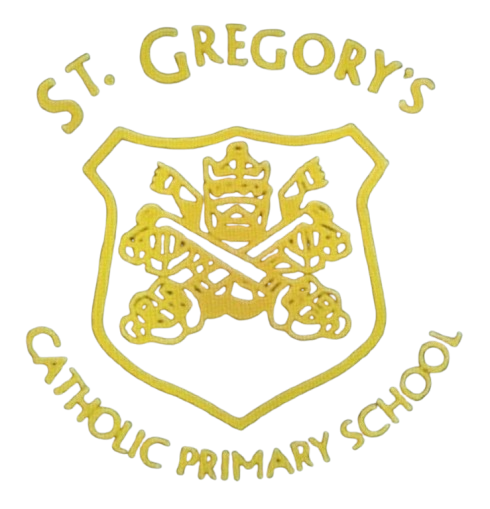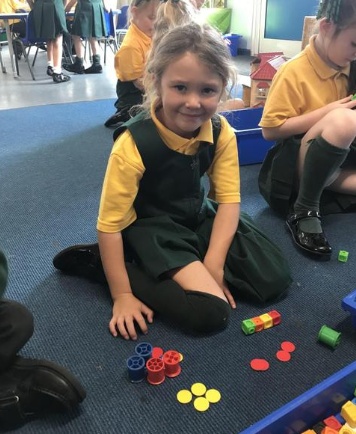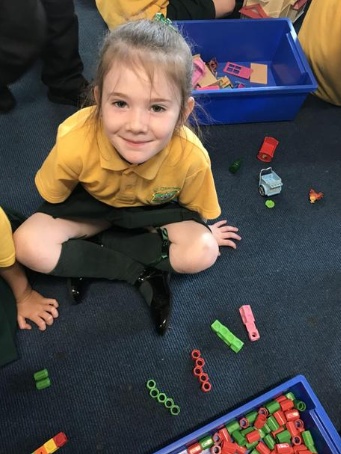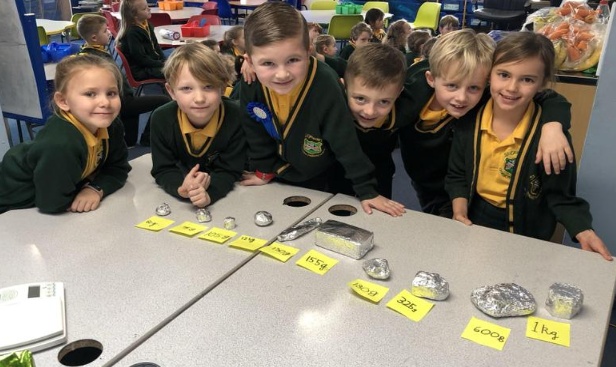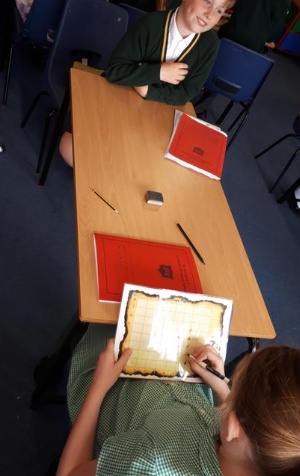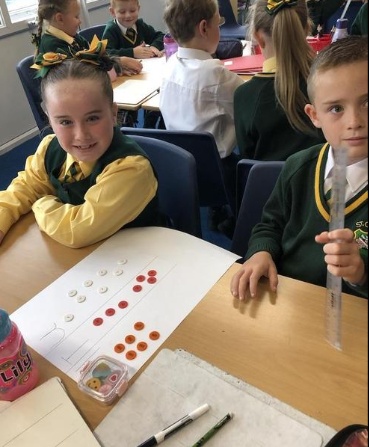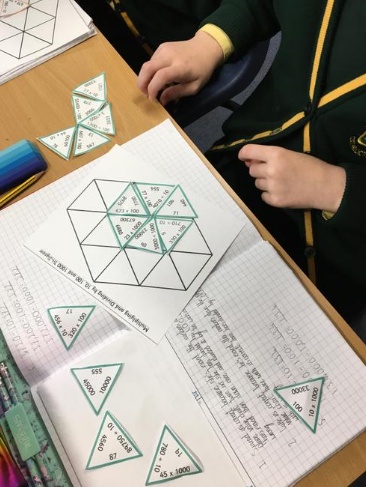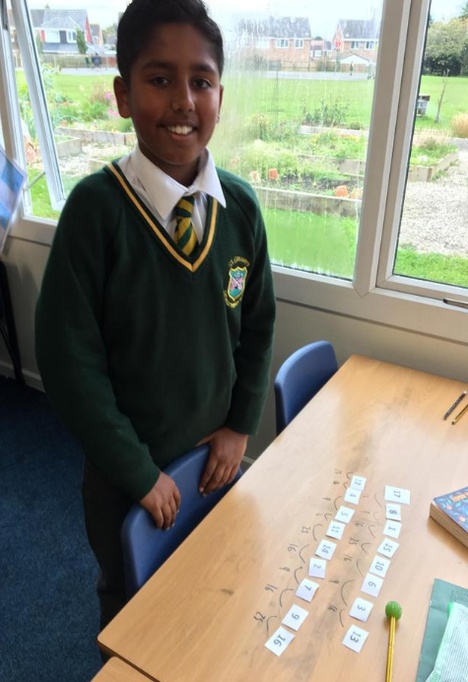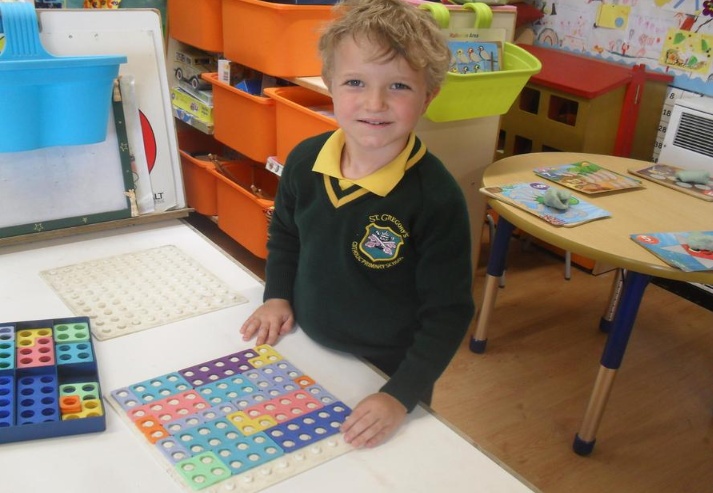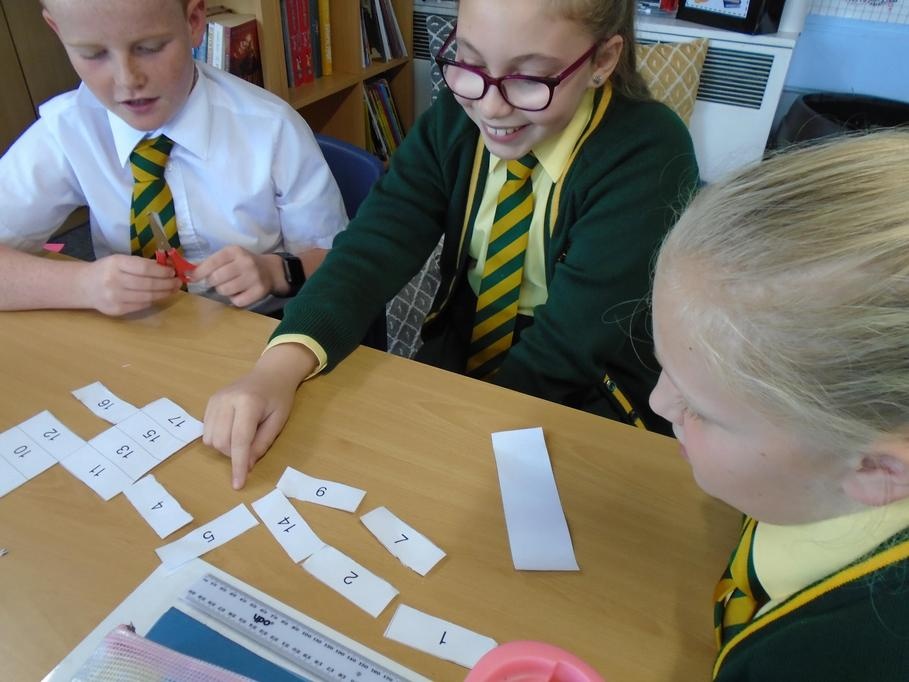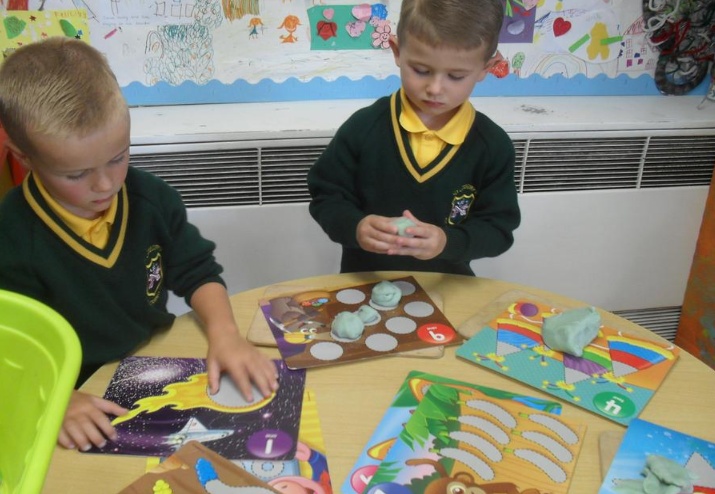Maths
At St Gregory’s, we believe that every child has the potential to succeed in mathematics and our curriculum design is intended to foster enjoyment of maths and develop successful learning by developing the necessary skills to become confident, fluent, reasoning andproblem-solving mathematicians. We believe that a high-quality maths curriculum develops confident and resilient children, who can apply taught content and skills to every day contexts and life experiences. Our mathematics curriculum is based on the expectations and aims of the 2014 National Curriculum for mathematics and the 2021 statutory framework for the Early Years Foundation Stage. We have high expectations within our curriculum, focusing on the mastery approach to teaching mathematics. Within a teaching sequence, children will be challenged in all three core aims of the maths curriculum: fluency, reasoning and problem-solving. All staff have high expectations of pupils in lessons and expect them to demonstrate their understanding in a variety of ways using a concrete, pictorial, abstract approach. Children develop fluency through spaced retrieval practice and learning a new concept and apply this knowledge to reasoning and problem-solving tasks.
Mathematics in EYFS
Within our Early Years Foundation Stage, we believe that it is vital that children learn to enjoy and explore mathematics in multiple, real-life contexts, developing a deep understanding of number, pattern, shape, space and measure. This is implemented through planned, purposeful provision and through a variety of adult-led and child-initiated tasks. In EYFS, we provide opportunities for children to engage with mathematics through mathematical games, number rhymes, books and stories and provide opportunities for maths in daily routines. Mathematical language is used and represented daily, and staff engage in high-quality interactions with children, modelling and extending children’s thinking.
Mathematics in Key Stage 1 and Key Stage 2
Within KS1 and KS2, we build upon EYFS foundations and ensure that all our children are fluent in the fundamental maths, are able to reason mathematically and become confident problem solvers.
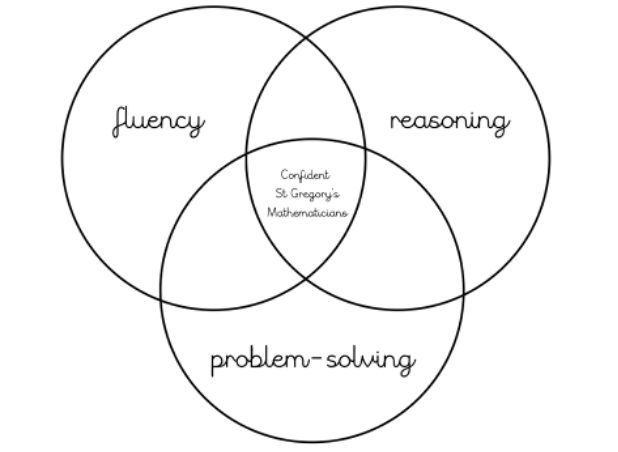
Our Intended Curriculum to Develop St Gregory’s Fluent Mathematicians
Fluency means becoming fluent in the fundamentals of mathematics, including through varied and frequent practice with increasingly complex problems over time, so that pupils have conceptual understanding and are able to recall and apply their knowledge rapidly and accurately to problems.
In our school we ensure that children become confident in the two types of fluency:
- Conceptual fluency (e.g. exploring five strands of place value, what an equivalent fraction is and identifying features of different representations of data)
- Procedural fluency (e.g. +- x ÷ calculation methods linked to whole numbers, fractions and decimals and exploring step by step methods)
Our Intended Curriculum to Develop St Gregory’s Reasoning Mathematicians
Reasoning mathematically means following a line of enquiry, conjecturing relationships and generalisations, and developing an argument, justification or proof using mathematical language. In our school we ensure that children become confident in mathematical reasoning through providing opportunities for them to:
- Conjecture relationships and generalisations e.g. if I add an odd and an odd number it will always result in an even number or all quadrilaterals have 4 right angles – true or false?
- Developing an argument, justification or proof using mathematical language e.g. prove it, justify, convince me, how can you work it and how did you work it out?
- Reasoning twists – this is explored through challenges such as: alike and different, odd one out, true or false, spot the mistake and sometimes, always or never true. These reasoning challenges can be adopted or adapted for any strand of mathematics: number, measurement and geometry.
Our Intended Curriculum to develop St Gregory’s Problem Solving Mathematicians
Problem-solving means applying their mathematics to a variety of routine and non-routine problems with increasing sophistication, including breaking down problems into a series of simpler steps and persevering in seeking solutions. Problem solving requires the children to be secure in and build upon conceptual understanding (fluency) and mathematical thinking and language (reasoning) to help solve sophisticated problems in unfamiliar contexts. We explore the five types of problem solving in different strands of mathematics:
- Two and three step word problems including bar model
- Finding all possibilities
- Finding rules and describing patterns
- Diagram problems and visual puzzles
- Logic problems
Maths Curriculum Implementation
At St Gregory’s, our approach to the curriculum is designed to develop children’s knowledge and understanding of mathematical concepts from the Early Years through to the end of Year 6.
In school, to guide and support teachers with planning and assessment, we follow the national curriculum and access and adapt, where appropriate, the White Rose Schemes of Work.
Our Calculation Policy is used within school to ensure a consistent approach to teaching the four operations over time. This includes mathematical language and vocabulary, core representations and calculation methods.
Within a teaching sequence, there is a clear and structured approach to lessons in EYFS, KS1 and KS2 to ensure all children have access to a well-planned and meaningful maths curriculum (refer to lesson structure). If appropriate, these lessons are modified to meet the needs of the individual.
We carefully follow the concrete, pictorial and abstract (CPA) approach, selecting the most appropriate core representations to develop confident, fluent, reasoning and problem-solving mathematicians.
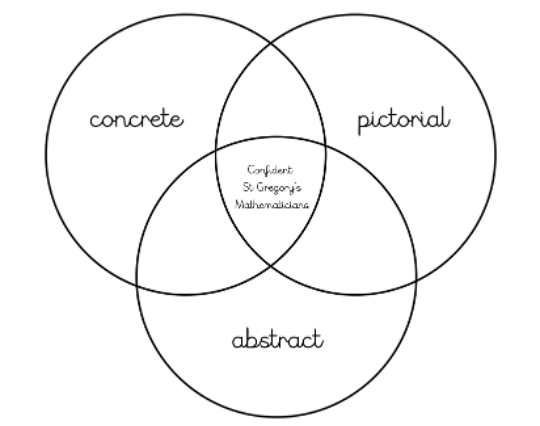
At St Gregory’s, we meet the needs of all mathematicians. The planning we use allows children to improve their own metacognition and access the lesson at their level. Pupils are given additional support in lessons dependent on their individual needs. For example, this may include, manipulatives readily available, worked and partially worked examples, templates and ready-made tables and charts and re-teaching and overlearning. For identified children, small group targeted intervention programmes (e.g., NumberSense or Becoming1stClass@Number) take place throughout the school week.
To ensure that children have accurate recall of number (facts and calculation methods), geometry, measure and statistics, prior knowledge is constantly revisited and transferred to long term memory. We give high priority to regular Spaced Retrieval Practice and additional arithmetic sessions which focus on the children selecting and choosing an appropriate method or strategy e.g., mental, jot or written calculation.
Spaced Retrieval Practice:
As part of our Fullness of Life offer, children in KS2 will complete BARCLAYS: Life Skills - Financial Education Scheme. For Years 3 and 4, objectives are mapped in line with our maths curriculum to support cross-curriculum learning and provide context for our money units. For Years 5 and 6, objectives are carefully selected to complement pupils’ wider personal development and to prepare them with practical skills for future financial understanding.
Wherever possible, the maths curriculum will provide opportunities to establish links with other curriculum areas. For example:
- Science (statistics, analysing data, sorting and classifying, using timers, using thermometers)
- History (chronology BC/AD)
- Geography (time zones, reading graphs, collecting and analysing data, studying temperature, compass points)
- Computing (coding and programming)
- Design & Technology (accurate measuring)
Maths Curriculum Impact
Our maths curriculum is developed in a way to ensure that every child has the potential to succeed in mathematics. At St Gregory’s, assessment can be summative or formative. Teachers assess on a daily basis through appropriate teacher intervention, observations and discussions with groups and individuals. The information is used to plan the next steps for individuals or groups of children, ensuring that lessons are pitched at the correct level of challenge. Children are provided with opportunities for self/peer-assessment and improvement. Marking is developmental and children are provided with next steps to extend their learning, in accordance with the marking policy.
Termly NfER tests are conducted and analysed, and data is recorded into INSIGHT tracking program to identify focus groups of children. End of Key Stage tests are conducted in accordance with the latest guidance and requirements.
The impact of mathematics teaching at St. Gregory's is monitored regularly as part of our monitoring cycle. As a school, we are continually committed to raising standards, establishing high expectations, and promoting effective teaching and learning and monitoring is a pivotal part of this process which can lead to tailored CPD. Evaluating the information gathered from learning walks, book monitoring, pupil voice, staff feedback and maths surgeries enable good practice to be shared and identify where further improvements need to be made.
Home Learning:
Completing maths at home can really help children to flourish and making progress in school. Activities such as baking and cooking are great for incorporating maths skills and teaching children real life skills.
Knowing the multiplication tables is really important. To help children recall these facts, we have subscribed to Times Table Rock Stars.
Useful Links:
Home - Times Tables Rock Stars
Multiplication tables check: information for parents - GOV.UK
https://whiteroseeducation.com/parent-pupil-resources/maths
https://earlymaths.org/maths-postcards-for-families/
